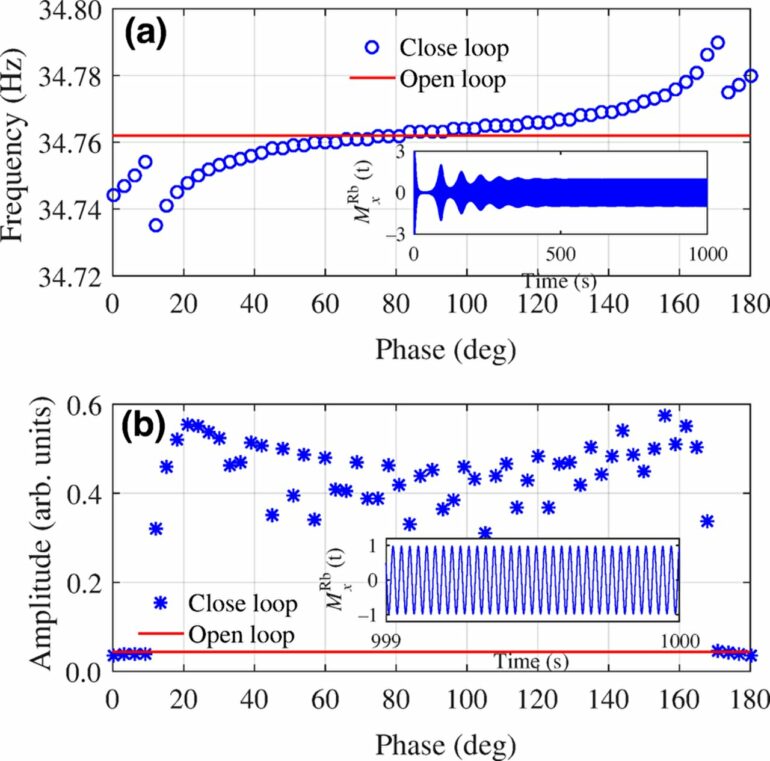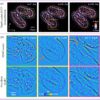A research group from the National Time Service Center of the Chinese Academy of Sciences has developed a hybrid high-stability atomic spin oscillator based on a Rb-Xe atomic comagnetometer. The research was published in the journal Physical Review Applied on July 14.
Atomic comagnetometers can be used in fundamental physical studies. High-sensitivity atomic comagnetometers are applied in inertial navigation gyroscope and biomagnetism detection and other practical applications.
The key parameter limiting the sensitivity of comagnetometers is the atomic spin coherence time. In the demonstrated setup, the researchers used a close loop self-driven field to realize non-decaying spin oscillation signal, prolonging the coherence time to infinite.
“In this way, the comagnetometer works as an active atomic clock, e.g., hydrogen maser, forming a Rb-Xe spin oscillator, whose oscillation frequency is highly sensitive to magnetic field variations,” said Prof. Liu Guobin, corresponding author of the study.
As an atomic magnetometer, the Rb-Xe spin oscillator realized a sensitivity less than 10 fT/Hz1/2 at the frequency range of 0.01–10 Hz. In a long-term running up to 2,000 seconds averaging time, the absolute frequency instability reached to about 3*10-6 Hz (the Earth rotation rate is about 11*10-6 Hz).
The results are preliminary. Further analysis showed that the limit of frequency instability is at the level of 10 nHz or even further below, which can potentially serve as the gyroscope for inertial navigation or Earth rotation monitoring.
More information:
Erwei Li et al, Self-Driven Hybrid Atomic Spin Oscillator, Physical Review Applied (2023). DOI: 10.1103/PhysRevApplied.20.014029
Provided by
Chinese Academy of Sciences
Citation:
Researchers develop atomic spin oscillator with high stability (2023, July 26)



